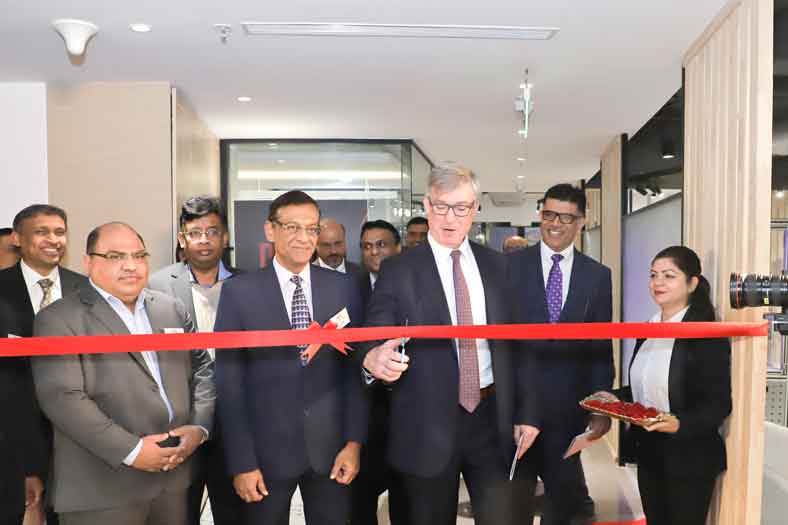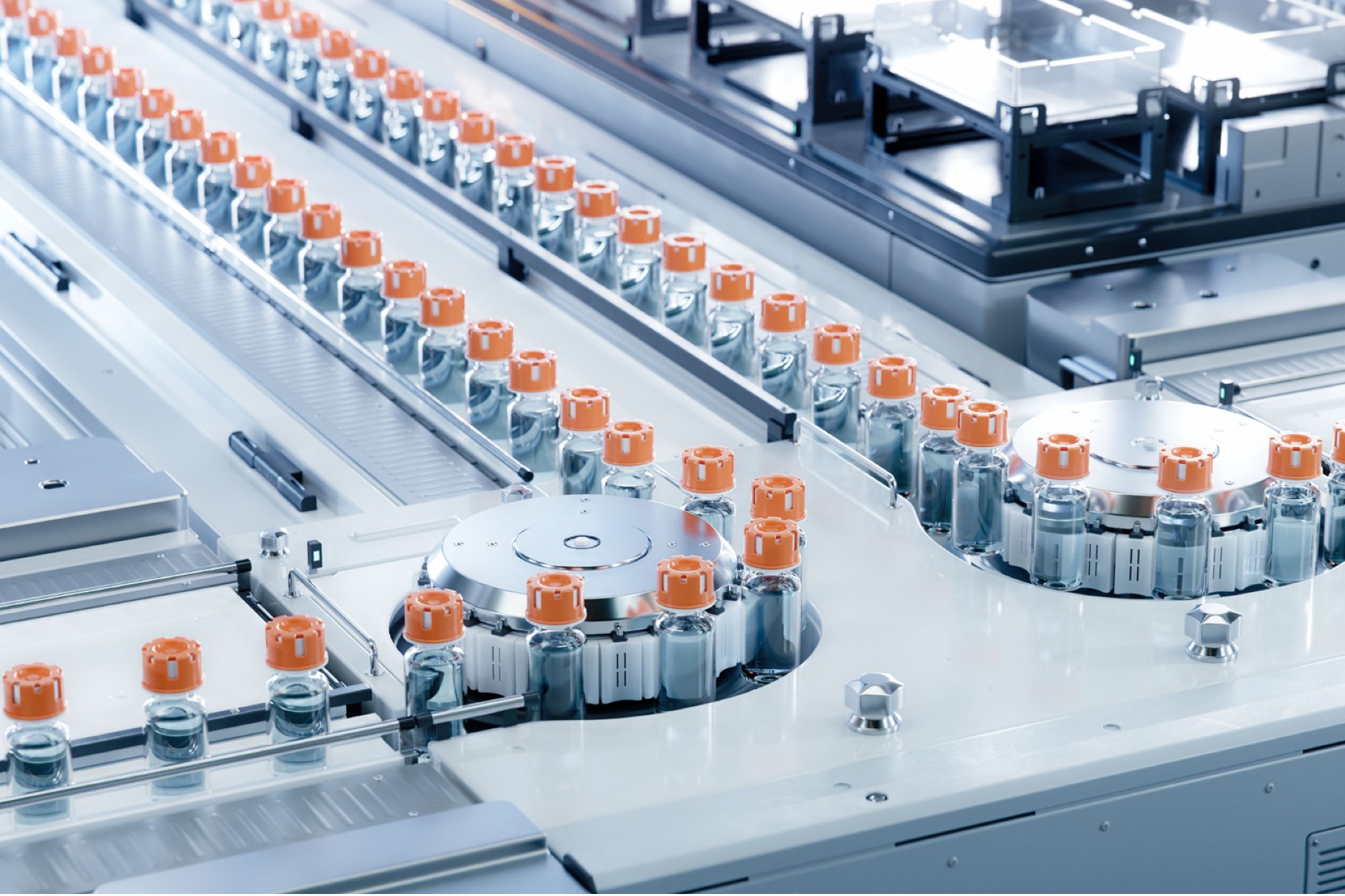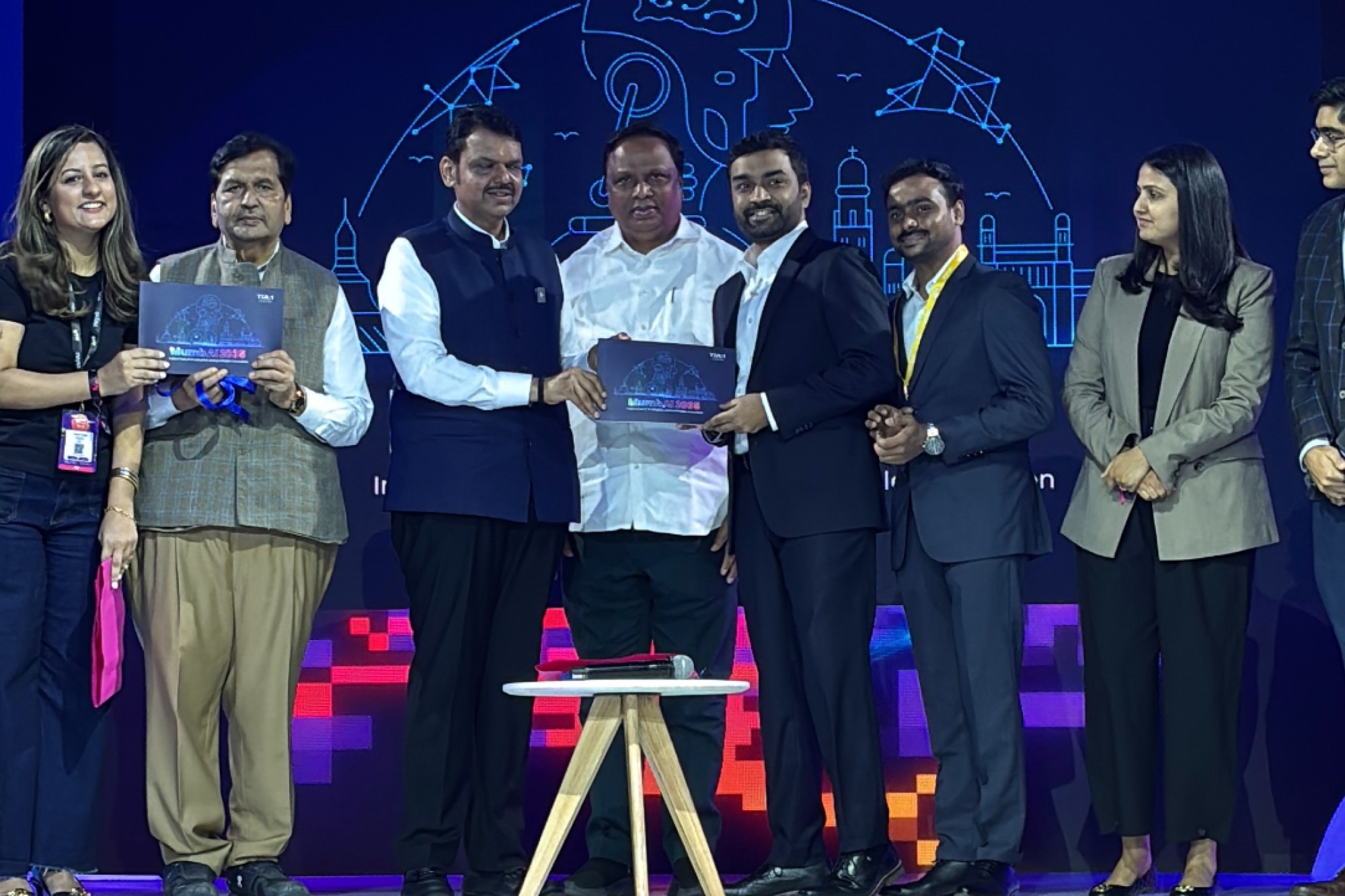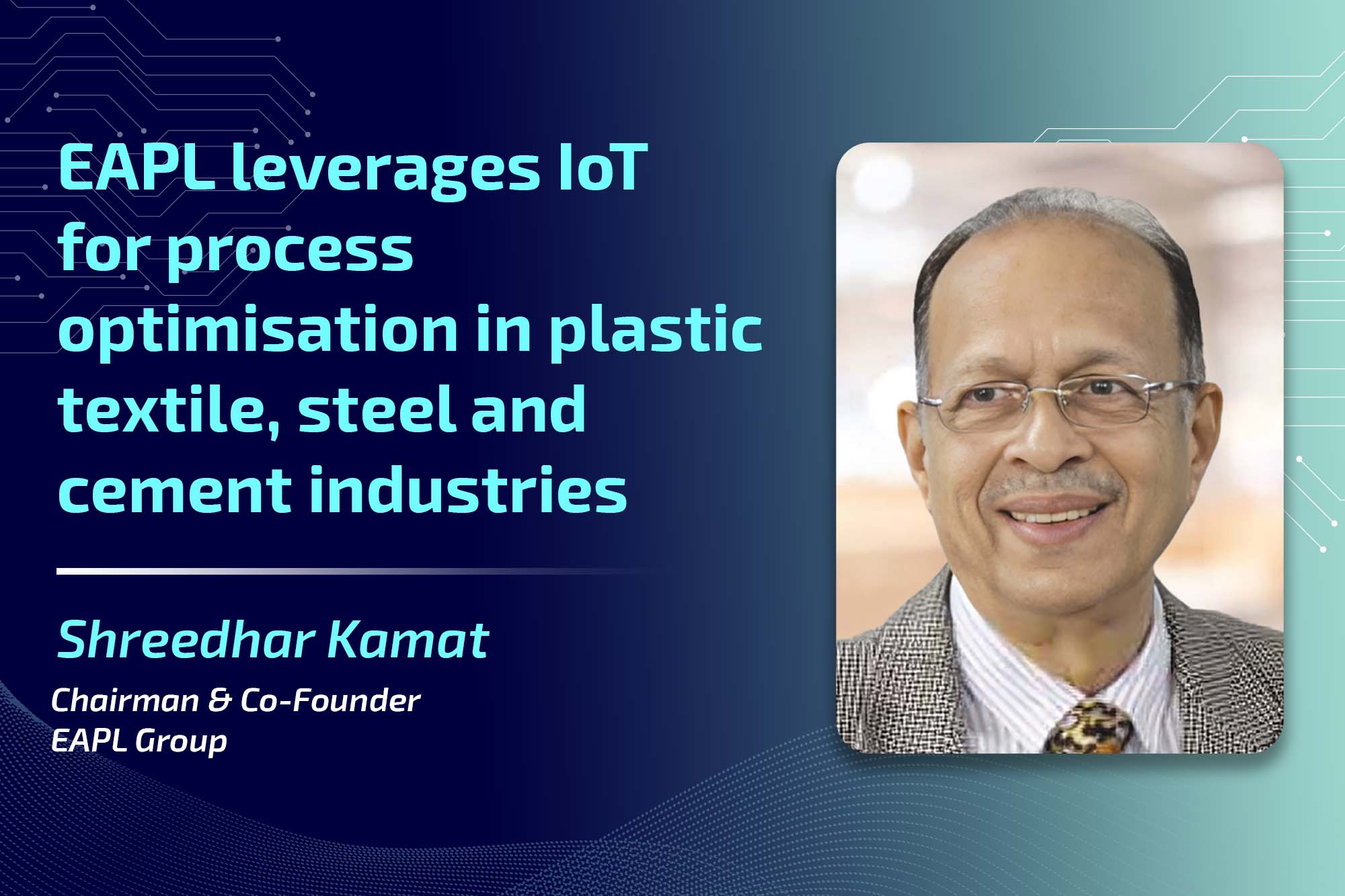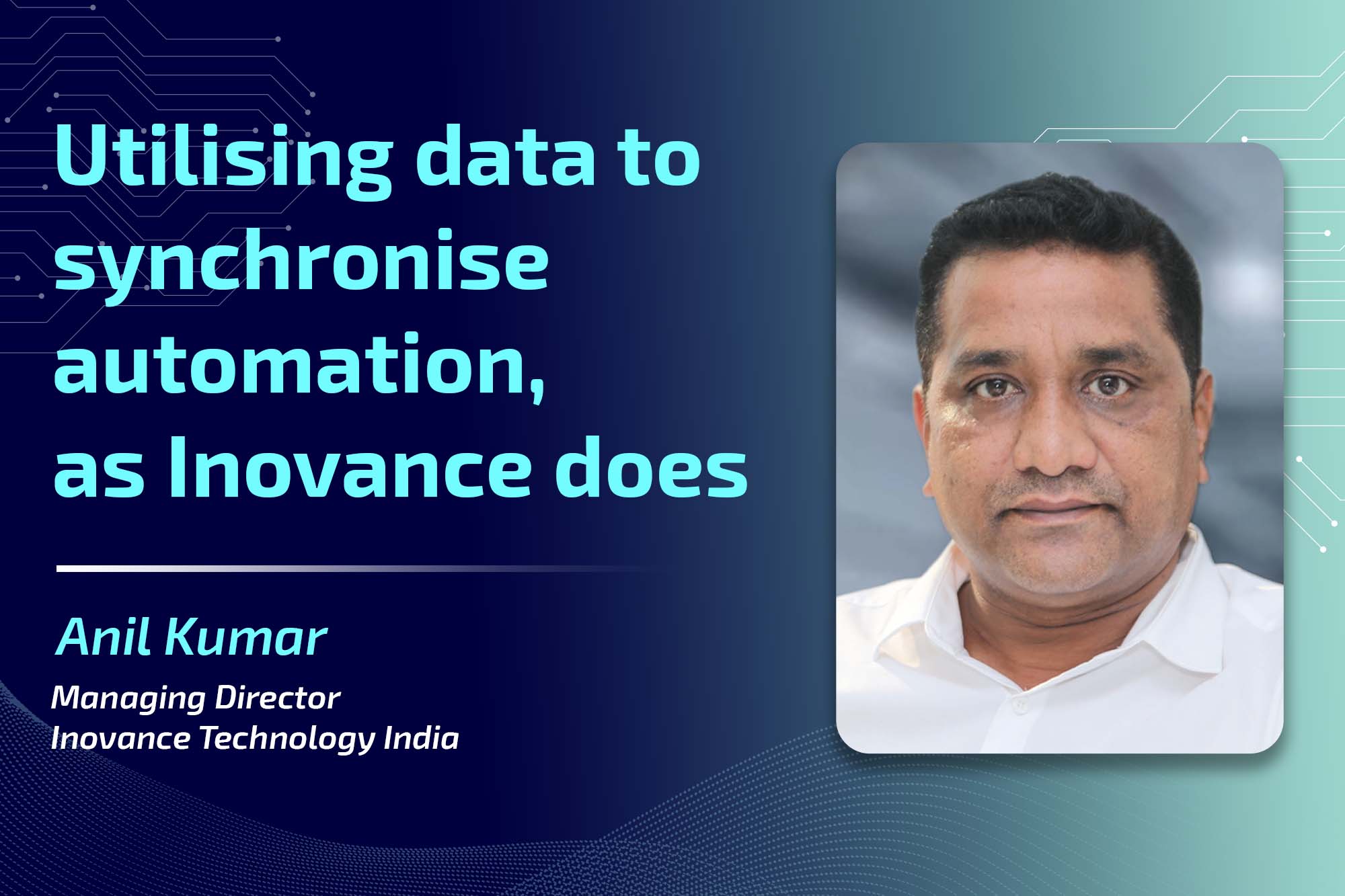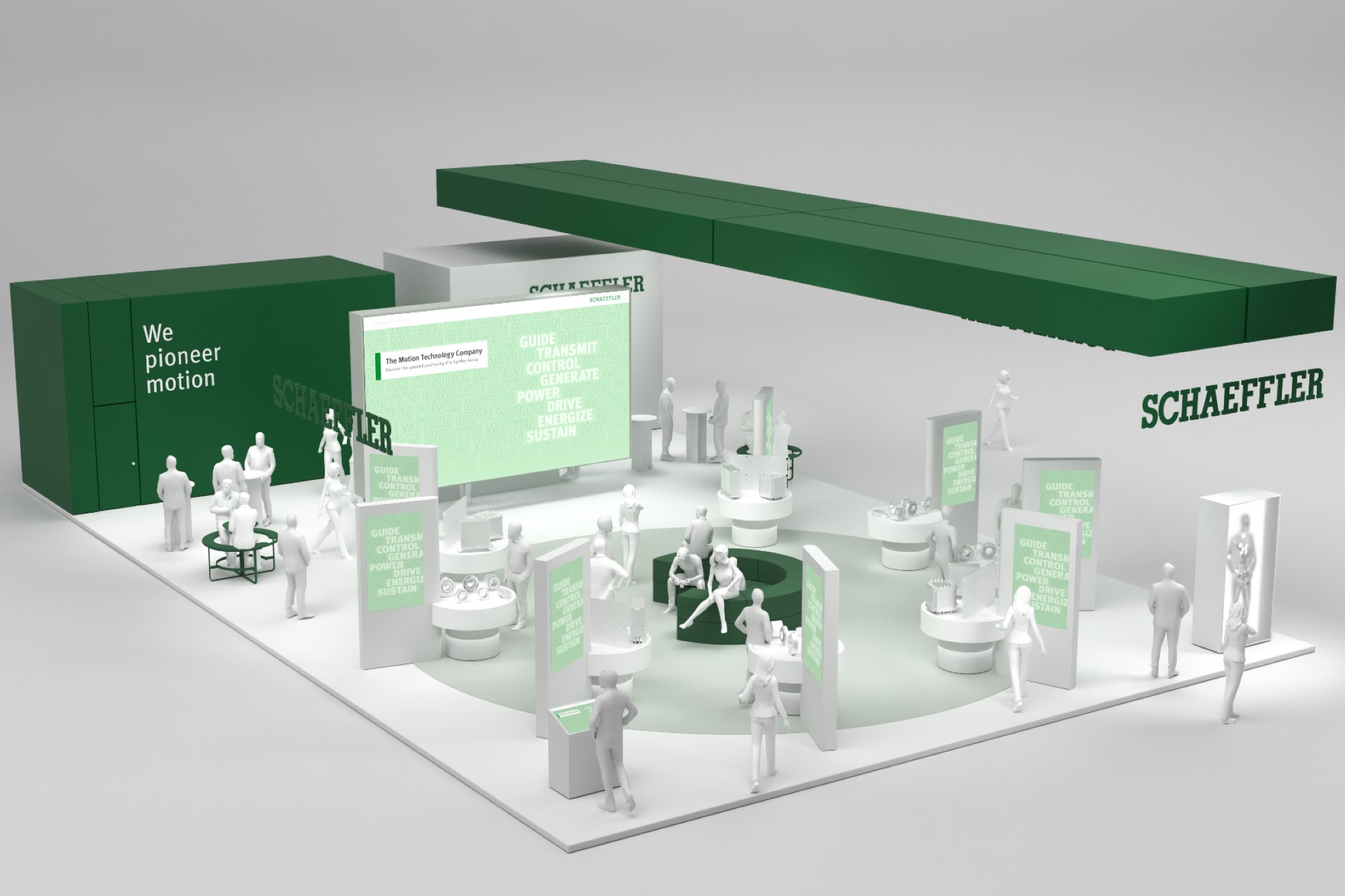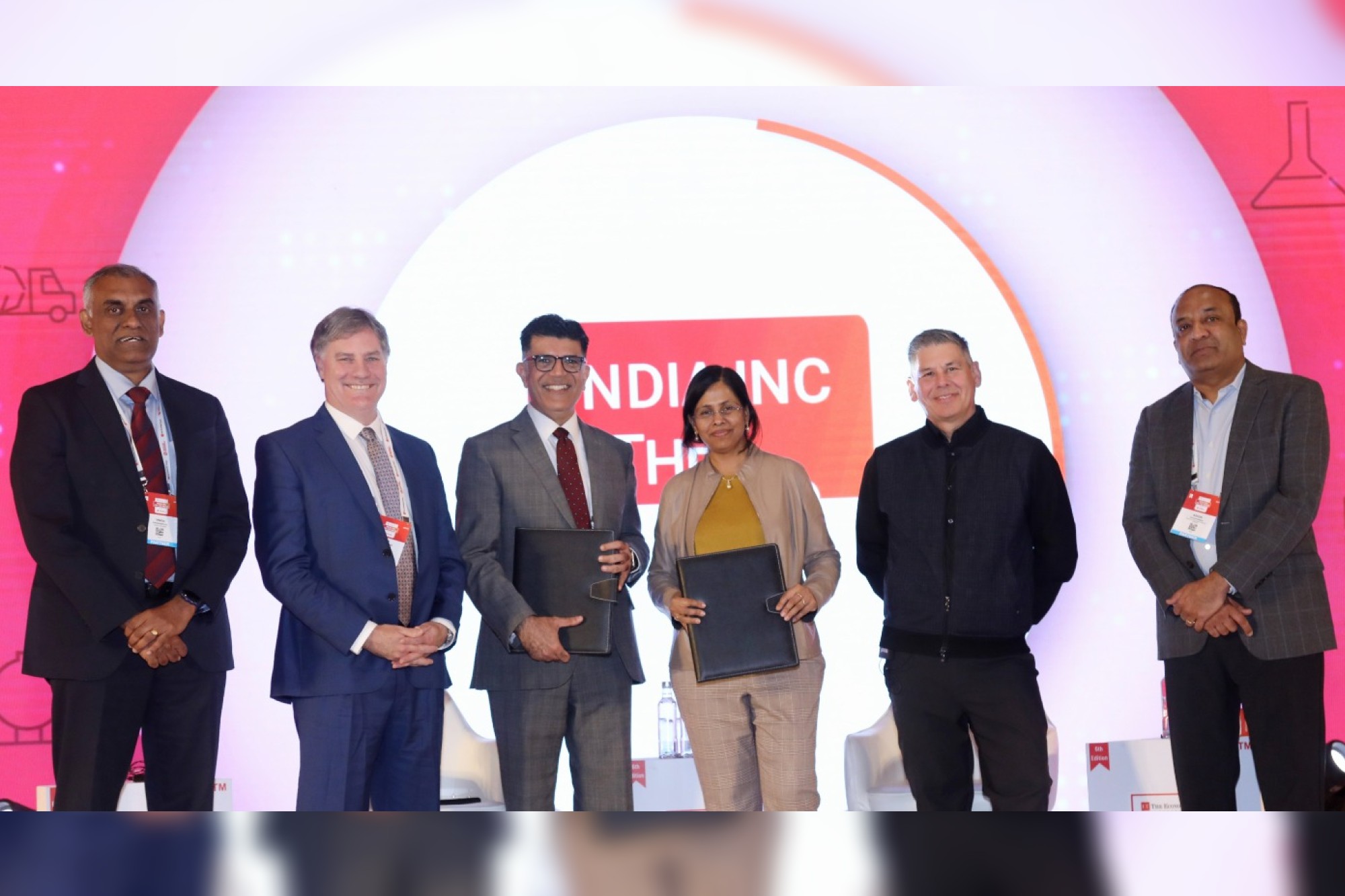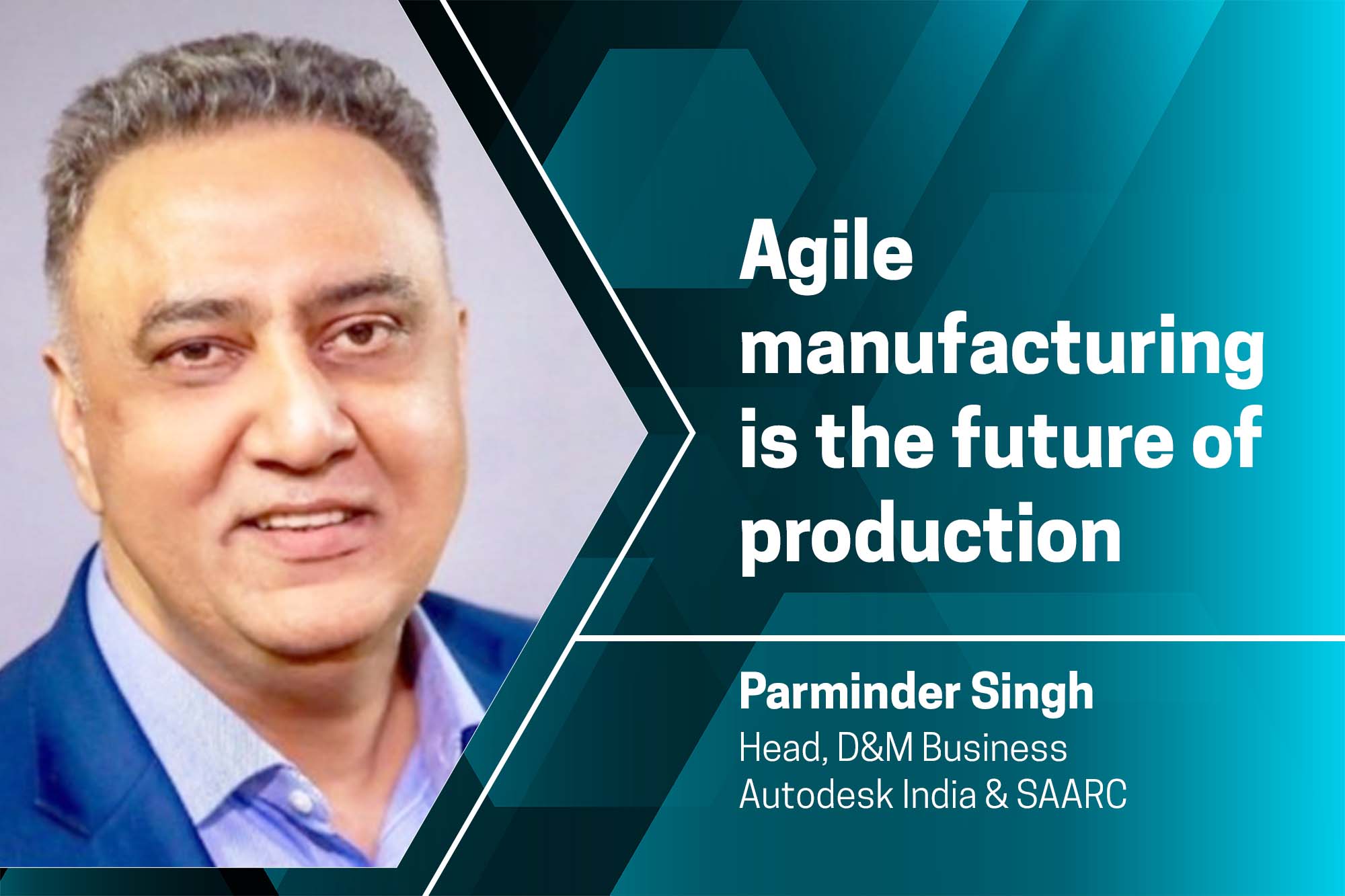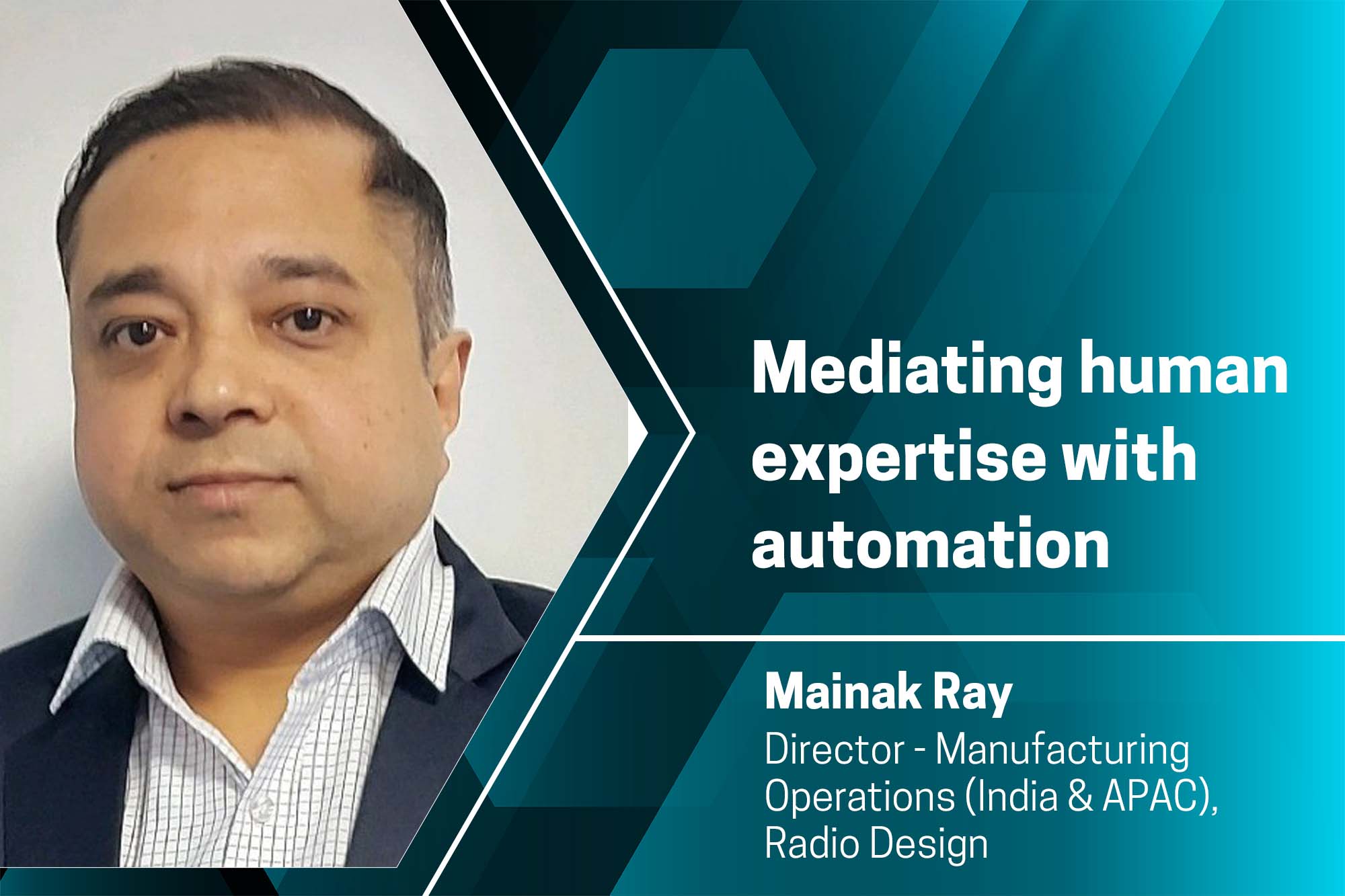Rockwell building the Idustry 4.0 Ecosystem
By OEM Update Editorial February 10, 2020 11:48 am IST
As the world’s largest company dedicated to industrial automation and information, Rockwell Automation has laid its paramount focus on developing smart solutions through digital transformation and Industry 4.0. To this end, Rockwell Automation announced the launch of its first Digital Transformation Experience Centre in India — a state-of-the-art, collaborative hub designed to inform and inspire Indian businesses about creative ways to spark productivity gains using automation. The Gurugram-based Centre is the first of its kind in India to fully demonstrate the integration of key technology platforms for IT-OT convergence, enabling customers to understand the benefits of the Connected Enterprise and the positive impact that it can have on their business. The Centre also illustrates how solutions and services offered are entirely scalable and can be tailored to businesses.
Rockwell Automation CEO Blake Moret said, “This is a hugely exciting time for a whole range of industries in India who stand to unlock trillions of dollars in value over the next decade as a result of rapid advancements in automation technology. It’s also a complex moment, when leaders have an exceptional number of decisions to make about how and where to invest their resources to achieve best results. With this Centre, we’re inviting businesses across the country to come and get informed and inspired about what the future could look like and how to get there.”
The Centre will let visitors experience first-hand the synergy of key technology platforms such as Network, Cybersecurity, Industrial Data Centre, Machine Learning as well as AR and VR. They can also experience scenarios showcasing how a business could fix problems faster and with less disruption to production by combining data on machinery faults, production commitments, and availability of parts along with insights into how long it would take a technician to fix the problem with the support of augmented reality.
The Centre will also demonstrate how Rockwell Automation integrates solutions seamlessly from the plant floor up through the enterprise in collaboration with Strategic Alliance Partners like PTC, Cisco, Microsoft, and Endress+Hauserto accelerate innovation and convergence for operational and information technologies through digital transformation. With the onset of Industry 4.0 in the global market, the call for a profound shift towards progressive technologies in the Indian industries is undeniable. Thus, industrial automation and Artificial Intelligence have been the irrefutable forerunners in discussions as India endeavours to triple its combined factory output in gross value added (GVA) terms to $1 trillion by 2025. Having realised this, Rockwell Automation recently held Rockwell Automation on the Move 2019 (RAOTM) annual conference, which emphasised the acute need and explicated what the oncoming Industry 4.0 signifies across the manufacturing sector.
The Economic Times presented the Digital Transformation Dialogue in association with Rockwell Automation to bring forth the best minds on one platform and enable a healthy debate on how to share their knowledge and expertise and help India work towards becoming a $5-trillion economy. Almost 18 companies CXOs had participated, including Maruti Suzuki Ind Ltd, SRF, Ambuja Cement, Hindalco Industries, etc.
Partnerships in solution development
With an analogous need for Smart Manufacturing solutions in the Indian industries, the company had previously affirmed partnerships with global developers of vital solutions, such as L&T, Cisco, Microsoft, Endress+Hauser, and Wipro Infrastructure Engineering.
In his engaging address at RAOTM 2019, Dilip Sawhney, Managing Director, Rockwell Automation India, spoke on venturing in partnerships towards the emergent era of Industry 4.0. Dilip Sawhney wants to take the lead in building India’s first industry 4.0 ecosystem of partner companies that will create solutions for the Connected Enterprise, which can analyse machine conditions in advance in order to avoid breakdowns and enhance productivity, but also improve on quality and compliance parameters. Consequently, John Watts, Regional Marketing Director – Asia Pacific, Rockwell Automation, expounded on the need for assimilation of Industry 4.0 in the manufacturing segment. However, if people do not have the right mindset to change while adapting to it, then the transformation only tends to magnify existing blemishes in organisational practices. The significance of digital transformation for a business that wants to remain pertinent in its forte cannot be overlooked.
Smart and connected
Madan Kumar, End User Business Leader – South, Rockwell Automation, took over to speak about “How one can accelerate high performance operations through the connected enterprise”. This was followed by a session on “smart devices for smart manufacturing” by Rajendran Menon, Product Manager – Smart Devices, Rockwell Automation. He spoke about the various business drivers and challenges, smart devices in connected enterprises, and various aspects of what makes devices smart.
Moving on, Shibasis Patro, Manager – Equipments, Signode India, hosted a session on “Enabling digital transformation through smart machines and equipment”, discussing various aspects of technology like smart technology machines and equipment, integrated safety solutions, OEE solutions, and real-time diagnostics. Next, T D Dhanu, Technical Consultant – South, Rockwell Automation, presented a session on “How one can improve their operational efficiency through advanced analytics”. This session majorly discussed industry trends, an overview of analytics offered, and the walkthrough and story behind the development of Rockwell Automation Global Energy Drink (RAGE).
IT and OT convergence
The event commenced with the welcome address delivered by Abanibushan Bera, Regional End User Manager – Western Region, Rockwell Automation. Shortly after, the first session began with a remarkable presentation on “Why Businesses need to digitally transform – Your Future is Here” presented by RN Mohanty, President – Technology, Pidilite Industries. This was followed by another attention-grabbing address given by Abhay Dubey, Industry Manager – Rockwell Automation India and Asia Pacific, who explicated the topic of the Connected Process Plant and shared with the audience its trends and a few success stories.
The session then turned its attention towards IT and OT convergence. Under topics like CEO’s role in redefining workplace culture, accelerating innovation for business process execution and capital efficiency, the impact and importance of new technologies in business, increasing collaboration and enhancing employee efficiency and productivity, building partnerships for tailored solutions, Make in India – Is this the best time ever to be in India and how customer experience is increasing the value of your business?, AK Agarwal, CEO, BDMA and S M Thakor, Additional General Manager, GNFC, and Chairman, IT Forum, BDMA, acquainted the audience with IIoT convergence in their presentation, “Two Worlds converging in Industrial IoT”.
Digital transformation driving business outcome
The event further delved into the panel discussion, which was on the topic “Digital transformation driving business outcome”. Moderated by Shekhar Jitkar, Chief Editor, A&D India, the discussion was aimed at the business outcome and future trends of digitalisation, and how other advanced technologies like AI, AM or cloud computing can be utilised in a successful digital transformation journey. The panellists were Sandeep Redkar, Business Manager, Process Solution, Rockwell Automation; Subba Rao, Director, Aztec Consulting; Ramprasad Nori, Associate Vice President, Greenco Energy; Ravi Maknikar, National Head, Zenith Technologies; and Avinash Tote, Executive Director, Logicon Techno solutions.
According to Nori, firstly, it is important to have commitment from the management. Secondly, people who are going to implement digitalisation need to have the required mindset and should adapt to the change of technology. The discussion then turned to data security, which has been of importance even in top global companies. The criteria and parameters while approaching a solution provider and the expectations from solution providers and systems integrators were also discussed. Nori believes eighty percent of failures are predominantly because requirements have not been specified properly. Even major companies are not able to articulate, understand and convert what a customer is expecting into a solution, making the result zero. Everybody has to be equally updated as solutions are not readily available because they are all customised.
Going further on digitalisation
Post the panel discussion, Redkar gave a presentation on “What to Expect from a Modern DCS in Digital era”, which focused on the benefits of enabling IoT for better connected enterprises and customer outcomes, how digital technologies enabled by Rockwell Automation can help manufacturing organisations, life of an IIoT project, and DCS of today and tomorrow benefitting the industry. It is important for an industrialist to understand the security trends and its implementation in the industry to attain complete data protection.
The event came to an end with the final presentation of the day by T Venugopal, Power Control Manager – South, Rockwell Automation India on “Rethinking Motor Control in A Digital Age”. The session highlighted various motor control technologies, like across-the-line starters, soft starters, servo drivers and more. Venugopal also divulged into evolution of communication and the two layers of digital communication. He went on to speak about the intelligent motor controls from single network and its benefits, the value delivered, implementations and benefits of premier integration and Allen Bradley PowerFlex portfolio.
Global perspective
The global perspective on the adoption of Industry 4.0 or digitisation was put forward by Abhay Dubey. While many multinational companies have a high degree of adoption — having a specific digitalisation department that will only focus on the digitalisation aspect — it is unclear as to what kind of investments and what kind of returns they are going to get back. Additionally, he spoke on skill upgradation and highlighted that it is a continuous process.
As digitisation requires a substantial amount of investment, Dubey also quoted the factors which according to him would achieve the ROI required, “I would sum it up in three factors — one would be the people, second would be the processes around it, and third would be the technology.” On the implementation roadmap of digitisation, he stressed that it can attain success if the blueprint is undertaken in small baby steps. He suggested, “Have a proof of concept done, have a pilot on a small project before you jump on to the entire blueprint or put the whole investments together.”
Cyber security
Next, Sandeep Redkar spoke briefly about cyber security and explained the importance of drawing a base document on how to tackle threats and understand specifically the cyber security threats to counter in the solutions that you implement, which can thus be cost-effective. He spoke about the stages of ensuring data security and shared, “Security has to be prevalent across the system; it is not a point solution.” He further addressed the importance of automation systems as it takes away the uncertainty of how the production was done and gives a genealogy for every product.
On the topic of investment for IIoT, Redkar elucidated the three aspects which stand out: the first one is productivity yield and quality improvement; the second is maintainability and predictive maintenance; and the third is the use of AR and VR. The session reached its conclusion with an indispensible addition from Suchi Adhikari on the objectives of operational productivity, global competency, and sustainable operations. She added, “Gain an understanding of what is important to you and start taking baby steps towards a greater objective of achieving a digital enterprise.” Digital transformation must be considered as a possible solution, which will help access big data, analyse data, provide insights on hidden inefficiencies and streamline ventures towards maximum growth and potential.
Creating a clear roadmap
Rockwell Automation has created a platform for technology enablers to gain insights about the best practices for manufacturers who are keen to implement change across their organisation. The conference culminated to be a journey that would create long-term benefits, guiding dynamic manufacturing professionals for the staged approach with a clear roadmap. The final session for the conference focused on the technologies and transformations that come with implementing digitalisation. The vision of Industry 4.0 in the chemical and process industry was expounded on by Ramesh Dham, AGM – Industry 4.0, UPL. Taking up the topic of infrastructure required with the onset of digitalisation, Ankur Pancholi, Product Manager – Large Control, IO and Network Security, Rockwell Automation India, spoke on Secure Network Architecture for the Digital Plant.
The latter half of the session saw the presentation on “What to Expect from a Modern DCS in Digital Era” delivered by Sandeep Redkar. This was followed by the presentation on “Rethinking Motor Control in a Digital Age” by Jayesh Joisher, Power Control, Area Manager, Rockwell Automation, who imparted invaluable knowledge to the audience, as the conference drew close to its end. The final session concluded with the conclusive remarks for the event given by Komal Shah, Channel Sales Manager – Western Region, Rockwell Automation India. Thus, the conference proved to be a greatly insightful one with its exchange of perspectives, from the end users to the solution providers, and highlighted the benefits for industries with the inculcation of digital machinery in its plants.
The thematic triad
The exhibits and sessions at the conference also displayed new products and showcased the solutions support by Rockwell Automation and its partner companies. Subsequently, Rockwell Automation also announced that it will host the thought-provoking conferences of RAOTM in the cities of Bangkok, Thailand; Tianjin, China; and Jakarta, Indonesia. Throughout the event, the discussions were centred on themes of prominence, which were Connected Enterprise, Data Analytics and Augmented Reality, and Innovation.
Connected Enterprise focused on the new analytics and digital solutions, that can help transform data into understandable information. This, in turn, would empower users to confidently make more informed decisions in the entirety of the industry — from the plant floor to the enterprise. Data Analytics and Augmented Reality emphasised Rockwell Automation’s expansion of its portfolio by tapping into its partnership with PTC. This will translate into help delivered to customers in order to increase productivity and plant efficiency, reduce operational risk, and provide better system interoperability. Further, the innovation segment paid attention to the availability of pristine technologies to the customers. This would help better comprehend how new technologies will change manufacturing and production, including Artificial Intelligence, Augmented Reality, wearables and other disruptive technologies.
Thus, the dialogue expounded on the remarkable scope for Industry 4.0 in the Indian manufacturing sector, while highlighting the urgency to adapt to newer technology and smart solutions. With its offerings of industrial automation and Artificial Intelligence, the conference also discussed the role of globally driven competition and the requirement for partnering with solution developers to build the Indian Industry 4.0 ecosystem.
Cookie Consent
We use cookies to personalize your experience. By continuing to visit this website you agree to our Terms & Conditions, Privacy Policy and Cookie Policy.



